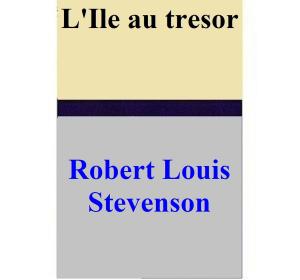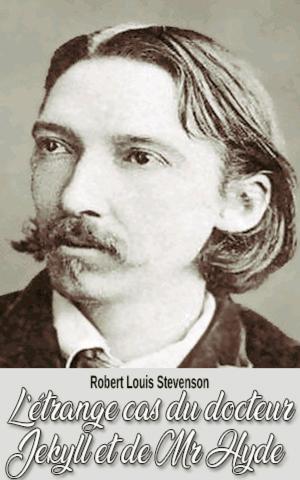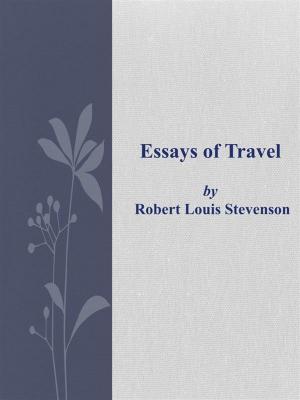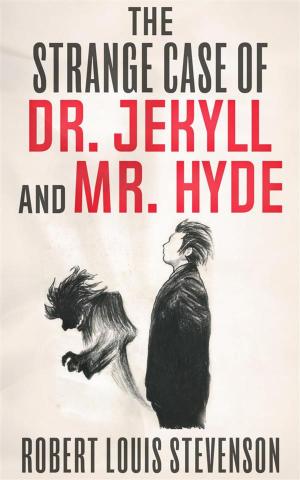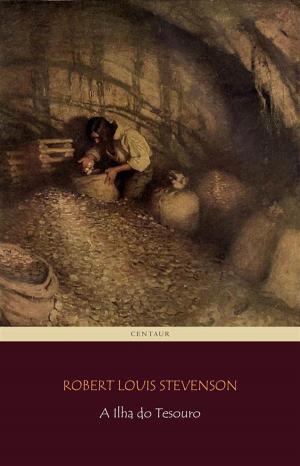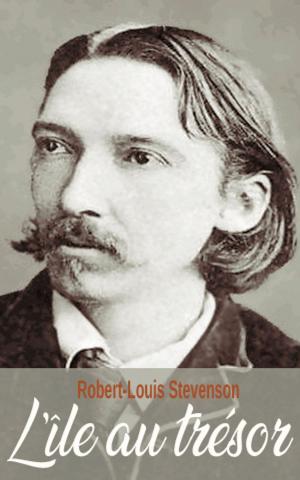Strange Case of Dr Jekyll and Mr Hyde (1886)
Fiction & Literature, Action Suspense, Science Fiction & Fantasy, Science Fiction, Literary| Author: | Robert Louis Stevenson | ISBN: | 1230003328040 |
| Publisher: | Robert Louis Stevenson | Publication: | July 19, 2019 |
| Imprint: | Language: | French |
| Author: | Robert Louis Stevenson |
| ISBN: | 1230003328040 |
| Publisher: | Robert Louis Stevenson |
| Publication: | July 19, 2019 |
| Imprint: | |
| Language: | French |
Strange Case of Dr Jekyll and Mr Hyde (1886) by Robert Louis Stevenson (1850–1894)
Scottish novelist, poet, and travel writer famous for his novels of adventure, romance, and horror.
***
Strange Case of Dr Jekyll and Mr Hyde is a short novel about a London lawyer who investigates strange occurrences between his old friend, Dr. Henry Jekyll, and the misanthropic Mr. Edward Hyde. The work is known for its vivid portrayal of the psychopathology of a split personality, becoming an immediate success and one of Stevenson's best-selling works.
***
extract:
STORY OF THE DOOR.
Mr. Utterson the lawyer was a man of a rugged countenance, that was never lighted by a smile; cold, scanty and embarrassed in discourse; backward in sentiment; lean, long, dusty, dreary and yet somehow lovable. At friendly meetings, and when the wine was to his taste, something eminently human beaconed from his eye; something indeed which never found its way into his talk, but which spoke not only in these silent symbols of the after-dinner face, but more often and loudly in the acts of his life. He was austere with himself; drank gin when he was alone, to mortify a taste for vintages; and though he enjoyed the theatre, had not crossed the doors of one for twenty years. But he had an approved tolerance for others; sometimes wondering, almost with envy, at the high pressure of spirits involved in their misdeeds; and in any extremity inclined to help rather than to reprove. 'I incline to Cain's heresy,' he used to say quaintly: 'I let my brother go to the devil in his own way.' In this character, it was frequently his fortune to be the last reputable acquaintance and the last good influence in the lives of down-going men. And to such as these, so long as they came about his chambers, he never marked a shade of change in his demeanour.
No doubt the feat was easy to Mr. Utterson; for he was undemonstrative at the best, and even his friendships seemed to be founded in a similar catholicity of good-nature. It is the mark of a modest man to accept his friendly circle ready-made from the hands of opportunity; and that was the lawyer's way. His friends were those of his own blood or those whom he had known the longest; his affections, like ivy, were the growth of time, they implied no aptness in the object. Hence, no doubt, the bond that united him to Mr. Richard Enfield, his distant kinsman, the well-known man about town. It was a nut to crack for many, what these two could see in each other or what subject they could find in common. It was reported by those who encountered them in their Sunday walks, that they said nothing, looked singularly dull, and would hail with obvious relief the appearance of a friend. For all that, the two men put the greatest store by these excursions, counted them the chief jewel of each week, and not only set aside occasions of pleasure, but even resisted the calls of business, that they might enjoy them uninterrupted.
It chanced on one of these rambles that their way led them down a by-street in a busy quarter of London. The street was small and what is called quiet, but it drove a thriving trade on the week-days. The inhabitants were all doing well, it seemed, and all emulously hoping to do better still, and laying out the surplus of their gains in coquetry; so that the shop fronts stood along that thoroughfare with an air of invitation, like rows of smiling saleswomen. Even on Sunday, when it veiled its more florid charms and lay comparatively empty of passage, the street shone out in contrast to its dingy neighbourhood, like a fire in a forest; and with its freshly painted shutters, well-polished brasses, and general cleanliness and gaiety of note, instantly caught and pleased the eye of the passenger.
Strange Case of Dr Jekyll and Mr Hyde (1886) by Robert Louis Stevenson (1850–1894)
Scottish novelist, poet, and travel writer famous for his novels of adventure, romance, and horror.
***
Strange Case of Dr Jekyll and Mr Hyde is a short novel about a London lawyer who investigates strange occurrences between his old friend, Dr. Henry Jekyll, and the misanthropic Mr. Edward Hyde. The work is known for its vivid portrayal of the psychopathology of a split personality, becoming an immediate success and one of Stevenson's best-selling works.
***
extract:
STORY OF THE DOOR.
Mr. Utterson the lawyer was a man of a rugged countenance, that was never lighted by a smile; cold, scanty and embarrassed in discourse; backward in sentiment; lean, long, dusty, dreary and yet somehow lovable. At friendly meetings, and when the wine was to his taste, something eminently human beaconed from his eye; something indeed which never found its way into his talk, but which spoke not only in these silent symbols of the after-dinner face, but more often and loudly in the acts of his life. He was austere with himself; drank gin when he was alone, to mortify a taste for vintages; and though he enjoyed the theatre, had not crossed the doors of one for twenty years. But he had an approved tolerance for others; sometimes wondering, almost with envy, at the high pressure of spirits involved in their misdeeds; and in any extremity inclined to help rather than to reprove. 'I incline to Cain's heresy,' he used to say quaintly: 'I let my brother go to the devil in his own way.' In this character, it was frequently his fortune to be the last reputable acquaintance and the last good influence in the lives of down-going men. And to such as these, so long as they came about his chambers, he never marked a shade of change in his demeanour.
No doubt the feat was easy to Mr. Utterson; for he was undemonstrative at the best, and even his friendships seemed to be founded in a similar catholicity of good-nature. It is the mark of a modest man to accept his friendly circle ready-made from the hands of opportunity; and that was the lawyer's way. His friends were those of his own blood or those whom he had known the longest; his affections, like ivy, were the growth of time, they implied no aptness in the object. Hence, no doubt, the bond that united him to Mr. Richard Enfield, his distant kinsman, the well-known man about town. It was a nut to crack for many, what these two could see in each other or what subject they could find in common. It was reported by those who encountered them in their Sunday walks, that they said nothing, looked singularly dull, and would hail with obvious relief the appearance of a friend. For all that, the two men put the greatest store by these excursions, counted them the chief jewel of each week, and not only set aside occasions of pleasure, but even resisted the calls of business, that they might enjoy them uninterrupted.
It chanced on one of these rambles that their way led them down a by-street in a busy quarter of London. The street was small and what is called quiet, but it drove a thriving trade on the week-days. The inhabitants were all doing well, it seemed, and all emulously hoping to do better still, and laying out the surplus of their gains in coquetry; so that the shop fronts stood along that thoroughfare with an air of invitation, like rows of smiling saleswomen. Even on Sunday, when it veiled its more florid charms and lay comparatively empty of passage, the street shone out in contrast to its dingy neighbourhood, like a fire in a forest; and with its freshly painted shutters, well-polished brasses, and general cleanliness and gaiety of note, instantly caught and pleased the eye of the passenger.






